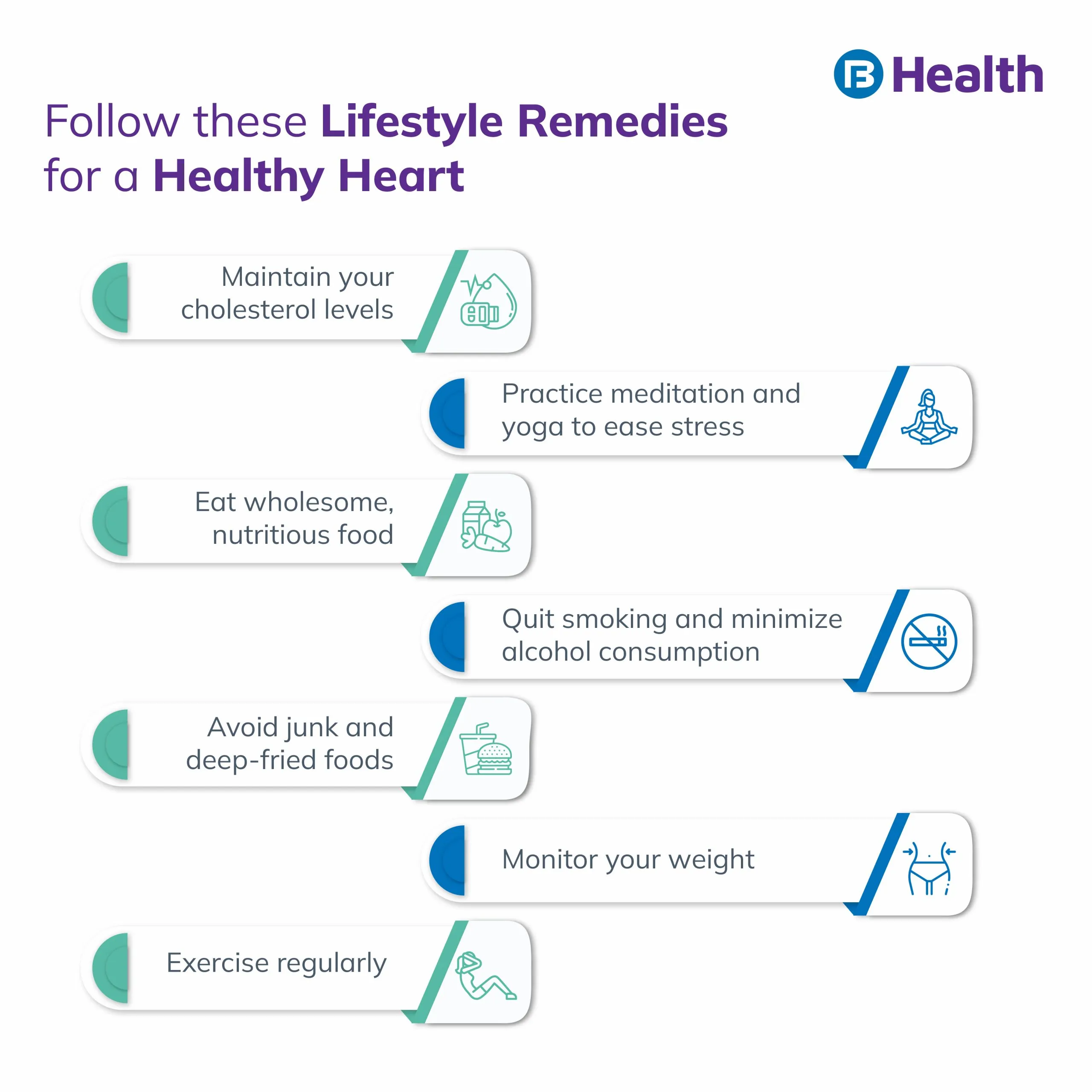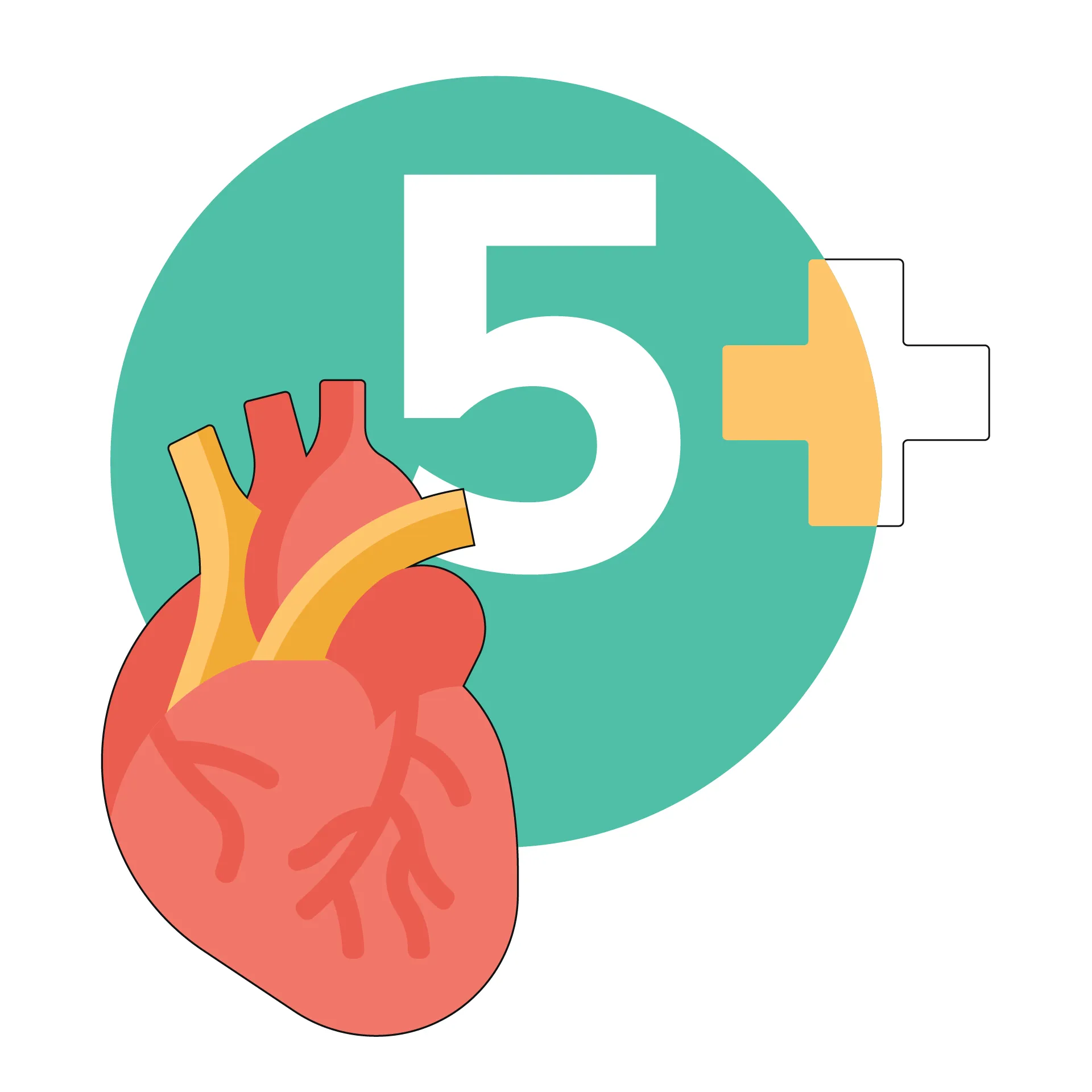Heart Health | 5 min read
Mitral Valve Prolapse: Causes, Symptoms, Complications and Treatment
Medically reviewed by
Table of Content
Synopsis
Mitral valve prolapse damages valves situated between the left chambers of the heart. Chest pain and fatigue are mitral valve prolapse symptoms. Read to know about mitral valve prolapse treatment.
Key Takeaways
- Mitral valve flaps bulge backwards into left chamber in mitral valve prolapse
- Abnormal structure of valves is one of the main mitral valve prolapse causes
- Mitral valve prolapse treatment is not required for unnoticeable symptoms
Mitral valve prolapse is an issue related to the valves in your heart. It damages those valves present in between your heart chambers on the left side. It may result in heart murmurs. When there is a problem with your heart valve, you will be able to discern the sound of blood flowing. This sound is known as a heart murmur.
The mitral valve has floppy flaps that tend to bulge a lot in the backward direction. When you experience a mitral valve prolapse, these floppy valves bulge in a way that a parachute does into the top left chamber of your heart. This kind of prolapse occurs every time your heart muscles contract.
In simple words, it is a health issue wherein both or just one of the flaps bulge backward into the left chamber of your heart instead of closing themselves tightly. Due to mitral valve prolapse, there is a chance for the blood to leak in a backward direction. This structural change in your mitral valve may also be called Barlow’s syndrome. While this condition is not serious, timely treatment of mitral valve symptoms is essential.
Statistics reveal that it is a common condition affecting approximately 176 million people globally [1]. In India, the incidence of mitral valve prolapse ranges between 2.7% and 16% [2]. Read on to know more about mitral valve prolapse causes, symptoms, diagnosis, and mitral valve treatment.

Mitral valve prolapse causes
One of the main causes of this condition is the abnormal structure of mitral valves. Being one of the four main valves of your heart, it helps control the flow of blood between the atrium and ventricle. When there is a deformity in its structure, blood starts to flow in the backward direction, that is, from the ventricle to the atrium.
A few factors that may result in mitral valve abnormality include:
- Presence of very long mitral valve flaps
- The inability of the mitral valve to close due to stretching of flaps
- The presence of loose flaps may result in pushing these back to the atrium
While the main reason behind mitral valve prolapse is not yet understood, genetics may play a role in this condition. Another factor could be an aging heart, which can cause degeneration of mitral valve flaps. If you are facing any connective tissue disorder, you may be prone to mitral valve prolapse.
Additional read: 5 Types of Heart DiseaseMitral valve prolapse symptoms
It is important to keep a close watch on signs because of a blood leak. Mitral valve prolapse symptoms may differ from one individual to another. In most cases, symptoms often go unnoticed. One of the most commonly mitral valve prolapse symptoms includes chest pain.
Though it may not lead to serious heart ailments, the persistent flow of blood in a backward direction can weaken your heart muscles. A few other noticeable symptoms include:
- General body weakness
- Inability to breathe properly during exercise
- Excessive dizziness
- Irregular beating of the heart
- Anxiety attacks
- Consistent palpitations
- Cough
- Tingling sensation in your feet and hands
Mitral valve prolapse diagnosis
This condition is also known as a click and murmur sound. Your doctor may perform a routine physical examination and check for this sound. The heart produces the click and murmur sound due to the abnormal flow of blood through the mitral valve.
Other diagnostic tests used for checking:
- Magnetic resonance imaging
- Cardiac catheterization
- Transesophageal echocardiography
- X-ray of the chest
- Stress tests
- Echocardiogram
Mitral valve prolapse complications
Though this condition does not cause any heart ailments, complications may occur in rare cases. A few complications include:
- Infection in the inner tissues of your heart
- Cardiac failure
- Arrhythmia
Since these ailments are not common, you can lead a normal life with mitral valve prolapse.

Mitral valve prolapse treatment
If you are not experiencing any noticeable symptoms, there is no need for any medical intervention. In case of severe murmur sound or other symptoms, you may have to take medications or even undergo surgery. A few common medicines your doctor may prescribe include:
- Beta blockers
- Blood thinners
- Diuretics
- Drugs for normalizing the rhythm of the heart
While the beta blockers help slow your heartbeat and reduce your blood pressure, intake of diuretics helps eliminate salt though urine. Blood thinners help in preventing blood clots and these are required if it is causing irregular heartbeats. In extreme cases, you may have to have surgery. Repairing your mitral valve or replacing it may be considered. You may have to undergo an open-heart surgery if required.
In the case of a minimally invasive option, loss of blood is less when compared to the open-heart procedure. Repair involves the removal of excess tissue from your damaged mitral valve, which enables its flaps to close properly. It is important that visit your doctor regularly to monitor the progression of mitral valve prolapse.
Additional read: Types of Valve Replacement SurgeryAs the heart is one of our most vital organs, it is important to keep a close watch on its functioning. To create more awareness and educate people about the importance of the heart, World Heart Day is celebrated every year in September. On this day, many symposiums and workshops are conducted across the globe. Eating a heart-healthy diet and practicing poses of yoga for the heart can keep your ticker fit and strong.
Avoid eating processed foods that may increase bad cholesterol and affect the heart. If you notice any unusual symptoms like chest pain, do reach out to experienced cardiologists on Bajaj Finserv Health. Get an online doctor consultation and resolve your concerns without any delay. Remember, with a healthy heart you can lead an active life!
References
- https://www.ncbi.nlm.nih.gov/pmc/articles/PMC4052751/
- https://www.ijpmonline.org/article.asp?issn=0377-4929;year=2015;volume=58;issue=2;spage=217;epage=219;aulast=Desai#:~:text=The%20worldwide%20prevalence%20of%20MVP,between%202.7%25%20and%2016%25.
Disclaimer
Please note that this article is solely meant for informational purposes and Bajaj Finserv Health Limited (“BFHL”) does not shoulder any responsibility of the views/advice/information expressed/given by the writer/reviewer/originator. This article should not be considered as a substitute for any medical advice, diagnosis or treatment. Always consult with your trusted physician/qualified healthcare professional to evaluate your medical condition. The above article has been reviewed by a qualified doctor and BFHL is not responsible for any damages for any information or services provided by any third party.





